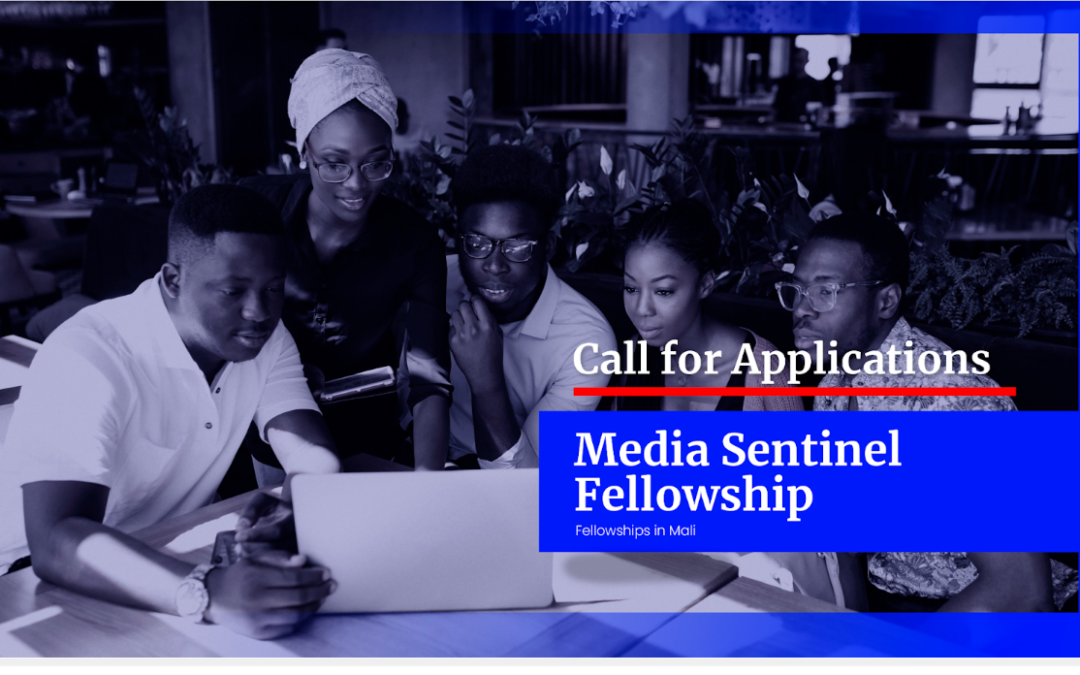Do you want to help counter misinformation, disinformation, hate speech, and incitement in Mali?
Code for Africa (CfA) is offering six Media Sentinel Fellowships to individuals with expertise in social media listening and analysis, with a good knowledge of social media cross-platform coordination and messaging in platforms such as WhatsApp, Telegram, X (Twitter) and Facebook.
The part-time fellowships are part of the joint initiative between USAID and the CSM-STAND consortium member, including PactWorld, CfA and Accountability Lab, implementing the project ‘Basiki ni Tagne Kunafoni’ in Mali to support the monitoring and analysis of the information environment in the country. Basiki ni Tagne Kunafoni’s primary objective is to support information integrity actors to increase resilience to manipulative information within the Malian information ecosystem.
Successful candidates will work with CfA’s iLAB forensic investigation team to provide information on creating early warning alerts on conflict within their communities. CfA’s iLAB team will train and mentor the Sentinels to analyse data from an ongoing threat actor mapping developed by the partner organisations under the project.
The fellowship package will consist of:
- Stipend: Fellows will receive a competitive monthly stipend.
- Training: Advanced training in media and social media monitoring
Are You Eligible?
The fellowships will allow individuals to use their social media and analysis skills in conjunction with CfA’s Watchlists and Lexicons, for proactive prebunking and communication of early warning signals for early warning detection of toxic online content.
The candidates will also receive support from MythBusters Ambassadors (MythBusters) in amplifying the debunking and research findings generated.
Therefore applicants must meet the following criteria:
- You have been trained as a community-based journalist or digital researcher and worked for at least one year.
- You must be non-partisan, without any link to political parties, government agencies, paramilitary organisations, state-affiliated media or other bodies that might create the perception of partisanship in the elections of both national and local politics.
- You must be fluent in English and French as well as be fluent in your local ethnic language.
- You must have access to a reliable home laptop/computer with stable internet connectivity, to be able to participate in programme activities and online classes/mentorship.
- Demonstrate an understanding of using social media such as WhatsApp, Telegram, Facebook and X.
- Be available for weekly one-hour virtual meetings.
The deadline for applications is 15 March 2024.
To apply, complete this form.
About the Partners:
- Code for Africa (CfA) is the continent’s largest network of digital democracy laboratories, with over 100 full-time data scientists, forensic researchers, technologists and digital storytellers working in support of investigative media and watchdog CSO partners in 21 African countries. CfA builds digital solutions that provide actionable information to citizens to encourage informed decisions, while also amplifying voices to strengthen civic engagement for improved public governance and evidence-driven accountability. CfA provides the technology/data support for Charter Africa. CfA will give fellows access to support from its openAFRICA data team, commons.AFRICA open source team, its source.AFRICA evidence research team, and a string of wider communities that CfA manages including the africanDRONE community of civic drone/mapping pioneers, the sensor.AFRICA community that uses remote sensors to monitor air/water/radiation and other environmental information, the PesaCheck fact-checking team that debunks misinformation, the iLAB forensic investigation team that tracks and exposes hate speech or other toxic content, the CivicSignal media monitoring and content analysis team, and the WanaData network of women data scientists/storytellers who liberate and amplify feminist data.
- iLAB is Africa’s largest forensic analysis lab using artificial intelligence (AI) and machine learning (ML) tools to fight disinformation and hate speech across the continent. It has full-time data analysts and cybercrime investigators in eight countries (in Burkina Faso, Côte d’Ivoire, Cameroon, Kenya, Nigeria, Senegal, South Africa, Sudan and Zimbabwe), who help expose digital campaigns designed to mislead the public in the run-up to elections and other democratic processes.
